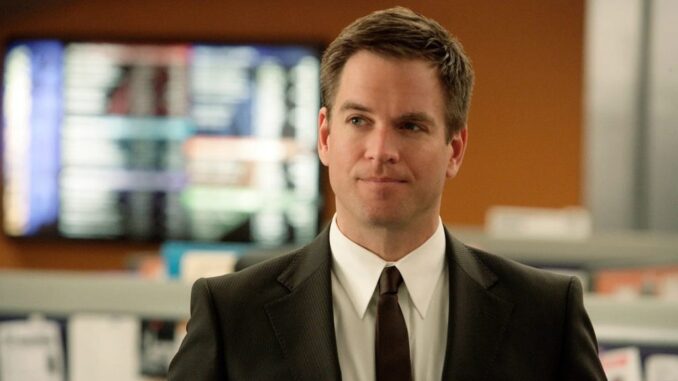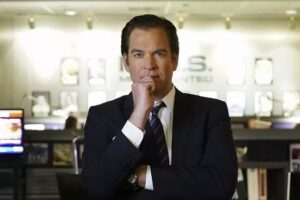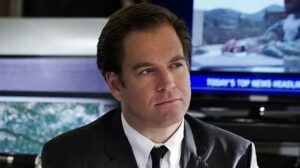
Introduction: The Struggles of NCIS in its Early Days
“NCIS” is one of the most successful TV shows to date, known for its gripping crime drama and unforgettable characters. But it wasn’t always this way. Despite its current status as a cultural phenomenon, the show had a rocky start, with ratings that were far from stellar.
Michael Weatherly, who played the iconic character Tony DiNozzo for 13 years, recently opened up about the early days of the series and why it didn’t get canceled—despite its underwhelming ratings. In this article, we’ll explore Weatherly’s comments, delve into how the show managed to survive, and why the world fell in love with the team at NCIS.
Why ‘NCIS’ Struggled with Low Ratings Early On
When “NCIS” premiered in 2003, it was a spin-off of the popular series “JAG.” While it had the potential to succeed, the show didn’t immediately capture the attention of viewers. Ratings were lukewarm at best. This left many to wonder whether it would be another short-lived show. But as Weatherly puts it, “We weren’t bad enough to get canceled.”
The Initial Struggles: A Slow Start
“NCIS” wasn’t an instant hit. During its early years, the show had to contend with multiple challenges, including an evolving time slot, stiff competition from other shows, and its need to carve out a unique identity. The first season received mixed reviews, and the viewership numbers were not as high as CBS hoped. Still, the network decided to give it another shot.

Why ‘NCIS’ Didn’t Get Canceled: The Secret Sauce
The Show’s Core Appeal: Strong Characters and Engaging Storylines
One of the reasons “NCIS” managed to survive its shaky start was the strength of its characters and the engaging storylines. Fans were drawn to the team’s chemistry and the clever writing. Weatherly’s portrayal of Tony DiNozzo was a major factor in this. His mix of humor, charm, and vulnerability made him a fan favorite, and the dynamic between him and Gibbs (Mark Harmon) added depth to the show.
While the ratings may have been low, the show still had a loyal fan base that kept tuning in, helping it to survive the early years.
The Turning Point: When NCIS Found Its Footing
A Shift in Storytelling and Focus
By season two, “NCIS” found its footing. The writers began focusing on the relationships between the core team members and developing their individual stories more deeply. This change resonated with viewers, and the ratings began to improve. People started caring about the characters, and that emotional investment played a key role in the show’s rise.
The Power of Mark Harmon’s Gibbs
Another important factor was the leadership of Mark Harmon’s character, Leroy Jethro Gibbs. Harmon brought a gravitas to the show that made it compelling. His character became the anchor of the team, and fans were drawn to his tough yet empathetic leadership style. This also helped solidify the show’s direction, making it more focused and character-driven.
How the Show Evolved to Keep Viewers Engaged
Incorporating Humor and Heartfelt Moments
As the series progressed, “NCIS” embraced a mix of humor and heartfelt moments that balanced the intense drama. This became one of the show’s trademarks, setting it apart from other procedural dramas. Weatherly’s character, Tony DiNozzo, was particularly known for injecting humor into tense situations. His witty one-liners and playful banter with his colleagues became signature elements of the show.

Character Development: From Procedural to Family Drama
Over the years, “NCIS” evolved from a typical procedural drama to something more. The show began to focus not only on solving crimes but also on building a sense of family among the characters. This emotional growth added layers to the show and gave viewers more to invest in.
Behind the Scenes: Weatherly’s Reflections on the Show’s Success
The Importance of Chemistry Among Cast Members
Michael Weatherly has often credited the cast’s chemistry as one of the reasons for the show’s success. In interviews, he’s talked about how the team felt like a real family off-screen, which translated to their on-screen performances. The camaraderie between the actors created a genuine, relatable dynamic that drew audiences in.
Weatherly’s Role in Shaping the Show’s Tone
Weatherly also acknowledges that his own personality helped shape the show’s tone. Known for his quick wit and comedic timing, Weatherly’s approach to the role of Tony DiNozzo brought a lightness to the show, even when the storylines were heavy. His ability to balance drama with humor helped make the show more accessible to a broader audience.
The Turning Point: NCIS Becomes a TV Powerhouse
Building Momentum: Seasons 3 to 5
Once “NCIS” found its rhythm, the show started building momentum. Seasons 3 to 5 marked a turning point, with ratings climbing steadily. The characters had fully developed, the stories were compelling, and the team dynamic was well-established. By the end of season 5, “NCIS” was a staple of CBS’ lineup, and it looked like it was here to stay.
The Evolution of the Team Dynamic
Over time, the addition of new characters, such as Ziva David (Cote de Pablo) and Abby Sciuto (Pauley Perrette), further enriched the team dynamic. These new faces brought fresh energy to the show and expanded its appeal, helping it attract an even wider audience.
Michael Weatherly’s Exit and the Continued Success of NCIS
Weatherly’s Departure: A New Era for NCIS
In 2016, Weatherly made the decision to leave “NCIS” after 13 seasons. His departure marked the end of an era for the show, but it didn’t stop its success. The series continued to thrive, with new characters joining the team and maintaining the chemistry that made the show so beloved. Even without Tony DiNozzo, “NCIS” continued to draw millions of viewers each week.
The Show’s Longevity: Why It’s Still Going Strong
“NCIS” has defied expectations and continued to be one of the longest-running dramas in television history. Despite Weatherly’s departure, the show has managed to remain relevant and maintain its high ratings. A key reason for this is the show’s ability to evolve while maintaining its core values—strong characters, compelling storylines, and a sense of family.
The Legacy of NCIS: Weatherly’s Lasting Impact
Weatherly’s Impact on the Show’s Success
Weatherly’s role in the success of “NCIS” cannot be overstated. His portrayal of Tony DiNozzo became one of the most iconic characters in TV history. His witty one-liners, his chemistry with the team, and his emotional depth all contributed to making “NCIS” the powerhouse it is today. While the show has moved on without him, Weatherly’s legacy remains a central part of its history.
Conclusion: NCIS Defied the Odds to Become a TV Icon
“NCIS” may have started with low ratings, but its resilience, strong characters, and evolving storylines ensured that it would go on to become one of the most successful TV dramas of all time. Michael Weatherly’s comments about the show not being “bad enough to get canceled” offer an interesting perspective on how a show can survive against the odds. With its loyal fanbase, iconic cast, and compelling narratives, “NCIS” has cemented its place in TV history.
Frequently Asked Questions (FAQs)
1. Why did NCIS survive despite low ratings in the beginning?
The show survived due to its strong character dynamics, particularly the chemistry between the cast members, and its ability to evolve with engaging storylines.
2. What made Michael Weatherly’s role as Tony DiNozzo so significant?
Weatherly’s portrayal of Tony DiNozzo brought humor, heart, and wit to the show, creating a dynamic character that viewers loved.
3. How did NCIS evolve over time?
Over time, “NCIS” transitioned from a procedural drama to a show that focused on character development and relationships, helping it build a more dedicated audience.
4. What impact did Weatherly’s departure have on NCIS?
Weatherly’s departure marked a significant change, but the show continued to thrive due to its solid foundation and loyal fanbase.
5. How long has NCIS been on TV?
“NCIS” premiered in 2003 and is still running, making it one of the longest-running TV dramas in history.
